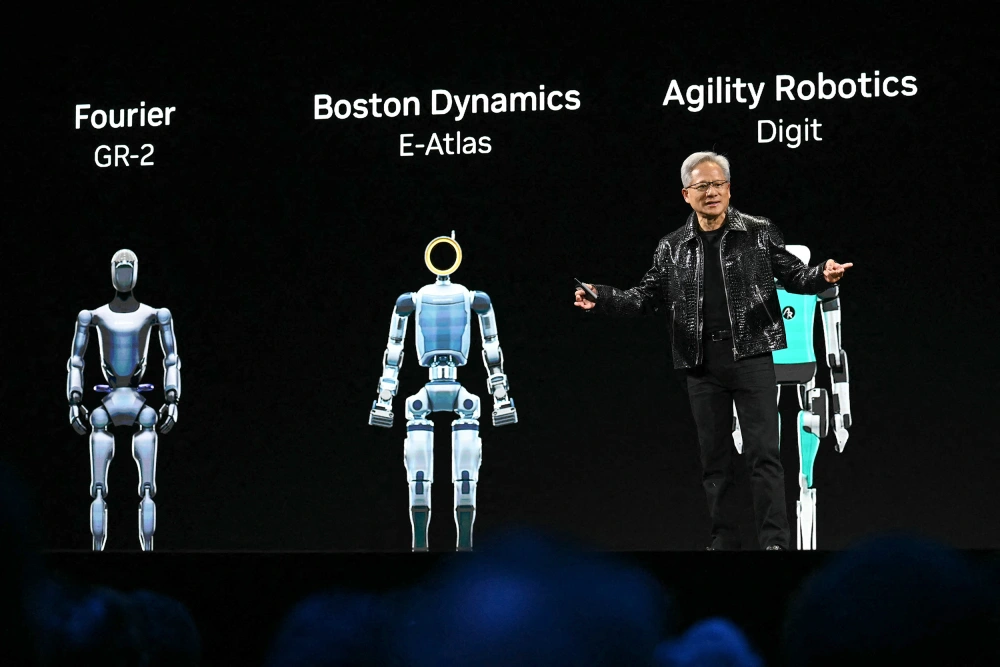Artificial intelligence investment is emerging as a key driver of U.S. economic growth, according to the International Monetary Fund. The IMF report emphasizes that the ongoing AI boom is reshaping industries, enhancing productivity, and fueling overall economic expansion. Experts note that the current wave of AI investment is reminiscent of the dot-com era in the late 1990s, when technology spending sparked substantial growth.
AI adoption is spreading across multiple sectors, including healthcare, finance, manufacturing, and logistics. Businesses are investing heavily in AI technologies to improve efficiency, reduce costs, and create new revenue opportunities. These innovations are not only transforming operations but also enhancing competitiveness, contributing directly to economic growth.
The IMF report highlights that AI investment is not confined to large tech companies. Startups and smaller enterprises are embracing AI to develop new solutions and expand market reach. This widespread adoption ensures that the benefits of AI extend beyond traditional tech hubs, supporting a diverse set of industries and communities across the country.
The economic impact of AI is multi-layered. Automation, machine learning, and data analytics are helping businesses streamline operations, improve customer services, and identify new market opportunities. While AI can replace certain routine tasks, it also creates roles that require advanced skills, fostering workforce development and enhancing long-term productivity.
Industry analysts compare the current AI surge to the late 1990s dot-com boom. During that period, rapid internet adoption transformed commerce, communication, and business processes. Similarly, AI is now reshaping how companies operate, make decisions, and engage with customers. Strategic investment in AI is driving innovation, growth, and technological leadership, much like the internet did decades ago.
Maximizing the benefits of AI requires careful planning and supportive policies. Governments and industry leaders are encouraged to invest in workforce training, research, and infrastructure to ensure AI is deployed responsibly. Policies addressing data privacy, ethical AI use, and regulation are essential to maintain public trust while enabling economic gains.
Venture capital and private equity funding for AI startups has also surged. Investors recognize the potential of AI to generate substantial returns, particularly in fields like natural language processing, autonomous systems, and predictive analytics. This influx of capital strengthens innovation, supports job creation, and reinforces the U.S. position as a global leader in emerging technologies.
Beyond economic benefits, AI adoption is producing tangible societal outcomes. Healthcare providers use AI to enhance diagnostics, personalize treatments, and improve workflow efficiency. Financial institutions apply AI for fraud detection, risk assessment, and customer support. Even public services are exploring AI applications to increase efficiency and accessibility. These advancements show that AI can generate value beyond profit, benefiting communities and society at large.
The IMF suggests that continued investment in AI will remain a key driver of U.S. economic growth in the coming years. Collaboration between public institutions and private enterprises, combined with investment in education and research, is likely to amplify AI’s positive impact. Strategic deployment of AI technologies can increase productivity, generate employment in new sectors, and foster long-term competitiveness.
AI innovation is cementing its role as a transformative force for the U.S. economy. By enhancing business efficiency, supporting workforce development, and enabling technological progress, AI is strengthening the nation’s economic foundations. Lessons from the dot-com era highlight the importance of strategic investment, workforce readiness, and regulatory oversight in harnessing technological growth.
As AI technologies continue to evolve, their impact on economic growth is expected to deepen. The current investment boom demonstrates that innovation, combined with careful planning and policy support, can drive sustainable development. With continued focus on research, education, and responsible implementation, AI is set to remain a central pillar of U.S. economic strength for years to come.



